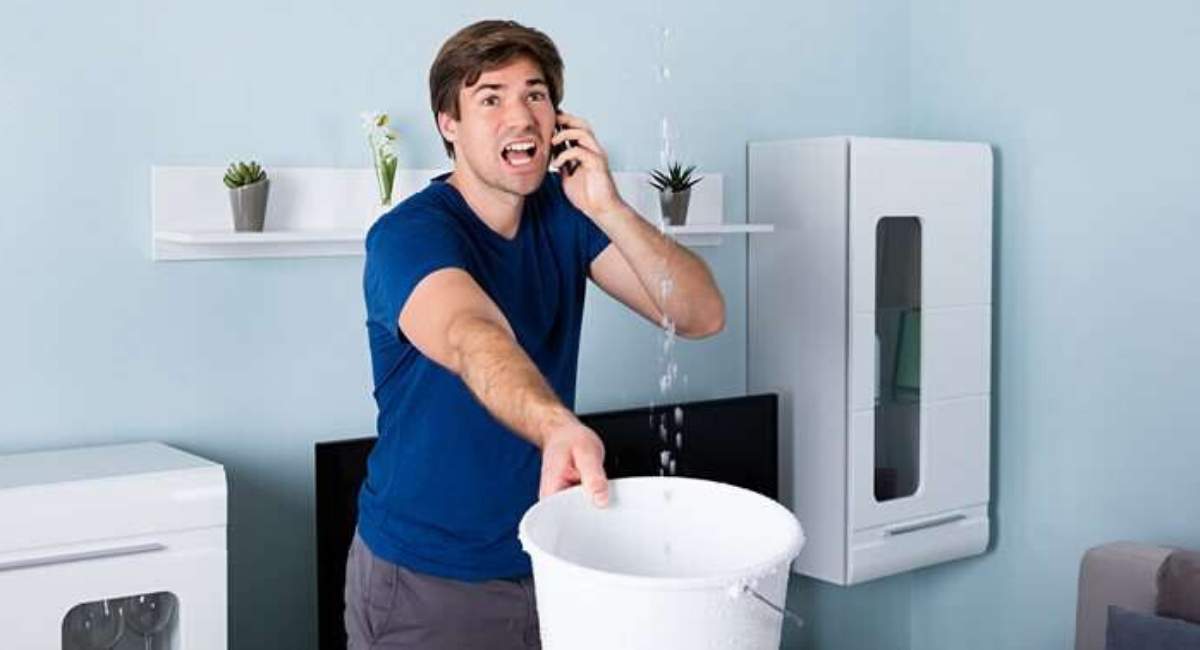Bosch Refrigerator Thermostat: Guide to Troubleshooting and Fixing
Imagine, for a moment, no chilled water, no fresh food storage, and no ice cream on a summer day. This is life without refrigerators. And at the heart of this invaluable appliance is a small yet mighty component: the thermostat.
Basics of a Refrigerator Thermostat
The thermostat, often a silent worker, plays a pivotal role in your refrigerator's operations. But what is it, and why is it so crucial?
A thermostat, in its essence, is a device that regulates the temperature within your refrigerator. Think of it as the conductor of an orchestra, ensuring each section (or compartment) hits the right notes (or temperature).
This precise regulation is pivotal because the right temperature means your food stays fresher for longer. Ever had milk gone sour before its expiry date or veggies wilt prematurely? Chances are, it's a thermostat issue.
But it's not just about freshness. Proper temperature regulation means your refrigerator isn’t overworking, ensuring energy efficiency and longevity. In my many years dealing with appliances, I've come to appreciate the often-overlooked importance of a well-functioning thermostat.
Common Signs Your Bosch Refrigerator Thermostat May Be Malfunctioning
How many times have we all heard a strange noise from our fridge and wondered, “Is that normal?” Over the years, I’ve serviced countless Bosch refrigerators and have come to recognize some common indicators that point toward a malfunctioning thermostat. Let's delve into them.
- The Refrigerator or Freezer is Too Cold or Not Cold Enough
- It's a pretty clear indicator. If you find ice cream that’s harder than a rock or a refrigerator that seems more like a lukewarm cupboard, your thermostat might be at fault. This issue can also be related to defrost heater issue, so make sure you check it correctly
- The Fridge Runs Continuously Without Cycling Off
- A refrigerator that's working overtime, humming away incessantly, is not just annoying; it's a sign that the thermostat isn’t communicating when to stop cooling.
- Food is Spoiling Faster Than Usual
- Remember the milk and veggies I mentioned earlier? If they're going off quicker than usual, your thermostat might not be maintaining the right temperature.
- The Fridge Isn't Running At All
- It sounds obvious, but a completely silent fridge could indicate a thermostat that isn’t turning the compressor on.
- Unusual Noises When the Thermostat Clicks
- A clicking noise when your fridge turns on or off is normal. But if a grinding or a shrill sound accompanies it, there might be an issue with the thermostat mechanisms.
Troubleshooting the Bosch Refrigerator Thermostat
Before you call in the cavalry (or, well, your local technician), there are a few troubleshooting steps you can undertake. But first, a word of caution: always prioritize safety.
- Safety Precautions Before Troubleshooting:
- Always unplug the refrigerator before attempting any DIY fixes. It's a non-negotiable step.
- How to Access the Thermostat in Most Bosch Refrigerator Models:
- Bosch designs its appliances with user-friendliness in mind. In most models, the thermostat can be accessed by removing the temperature dial panel. Once you’ve gently pried it off, you should see the thermostat behind it.
- Testing the Thermostat Using a Multimeter:
- A multimeter is an invaluable tool in your appliance troubleshooting arsenal. Set it to the Rx1 setting, and touch the probes to the thermostat’s terminals. If the multimeter reads zero, the thermostat is functioning correctly. If it reads infinity, it's time for a replacement.
- Checking for Ice Buildup or Blockage:
- Sometimes, the issue isn’t the thermostat itself but the surroundings. If there's excessive ice buildup or something blocking the vents, it can affect the thermostat’s readings.
- Verifying the Settings:
- It sounds simple, but ensuring that the thermostat is set to the right temperature can save a lot of hassle. Someone might’ve nudged the dial without realizing it.
Common Issues and How to Fix Them
A refrigerator thermostat broking down is not a common issue, but it can happen. A misbehaving refrigerator can be traced back to a few common culprits. Here’s a handy guide to what might be going wrong and how to set it right.
- Faulty Thermostat
- Recognition: Use the multimeter test mentioned above.
- Fix: Replacing a thermostat is relatively straightforward. Most come with a guide, but if in doubt, it's best to call a professional.
- Temperature Settings Misadjustment
- Tip: Always set the refrigerator temperature between 34°F and 38°F. The freezer should be at or below 0°F.
- Blocked or Dirty Coils
- Importance: Coils are like the lungs of your refrigerator. They need to be clean to function efficiently.
- Fix: The coils can be found at the back or underneath the fridge. After unplugging the refrigerator, use a coil brush or a vacuum to clean them.
- Faulty Electrical Connections
- Signs: If your fridge’s lights are flickering or it occasionally powers off and on.
- Professional Time: Electrical issues can be tricky and dangerous. If you suspect wiring problems, it's best to call in an expert.
Prevention and Maintenance Tips
The old saying goes, “An ounce of prevention is worth a pound of cure.” This is especially true for appliances. Proper maintenance can extend the life of your Bosch refrigerator and ensure it operates efficiently.
- Regularly Checking and Cleaning the Coils
- As previously mentioned, think of coils as the refrigerator’s lungs. Keep them dust-free to ensure your appliance breathes easily and runs efficiently.
- Avoiding Overloading the Fridge
- While it might be tempting to stock up, especially during a sale, an overly packed fridge can strain the motor. It also prevents efficient air circulation, leading to uneven cooling.
- Ensuring Proper Ventilation for the Refrigerator
- Always make sure there’s a few inches of space around your fridge, especially if it’s built into cabinetry. This allows for adequate airflow, helping the motor cool down and work efficiently.
- Setting the Right Temperature Based on the Season or External Environment
- Depending on whether it’s summer or winter, you might need to adjust the thermostat slightly to ensure optimal cooling.
When to Call a Professional
While DIY is gratifying, there are times when professional help is not just recommended but necessary.
- Complex Technical Issues: If the problem goes beyond simple thermostat or coil cleaning, it’s time to bring in an expert.
- Electrical Malfunctions: As previously mentioned, electrical issues can be hazardous. Don’t take risks.
- Recurring Problems: If an issue keeps cropping up despite your best efforts, there may be underlying complications that only a trained eye can spot.
- Peace of Mind: Sometimes, it’s just reassuring to have an expert give your appliance the green light.
Remember, Bosch appliances have their unique build and components. A technician experienced with Bosch products will always be a more reliable choice.
Conclusion
Your Bosch refrigerator, like any prized possession, requires care, understanding, and occasional professional intervention. The thermostat, as we've seen, plays a pivotal role in ensuring your food stays fresh and your appliance runs efficiently. Regular maintenance and being vigilant about potential issues can save you money, time, and unexpected hassles in the long run. Cherish your appliance, and it will serve you faithfully for years to come.
Frequently Asked Questions (FAQs)
- How often should I check my Bosch refrigerator's thermostat?
- It's good practice to check once every few months. However, if you notice any irregularities in cooling or hear unusual sounds, check immediately.
- Are there any specific tools needed for these troubleshooting steps?
- A multimeter is handy for testing the thermostat. A coil brush or a vacuum will be useful for cleaning the coils. Basic screwdrivers may be needed for access.
- How much does it typically cost to replace a Bosch refrigerator thermostat?
- The cost varies based on the model and region. Typically, a Bosch refrigerator thermostat can range from $20 to $100, not including labor if you hire a technician.
- Can I use a generic thermostat, or does it have to be a Bosch-specific part?
- It's always recommended to use Bosch-specific parts for compatibility, efficiency, and longevity reasons.








